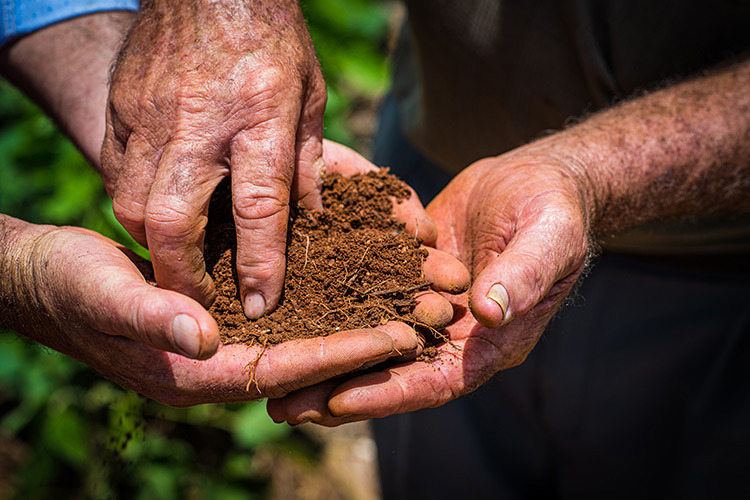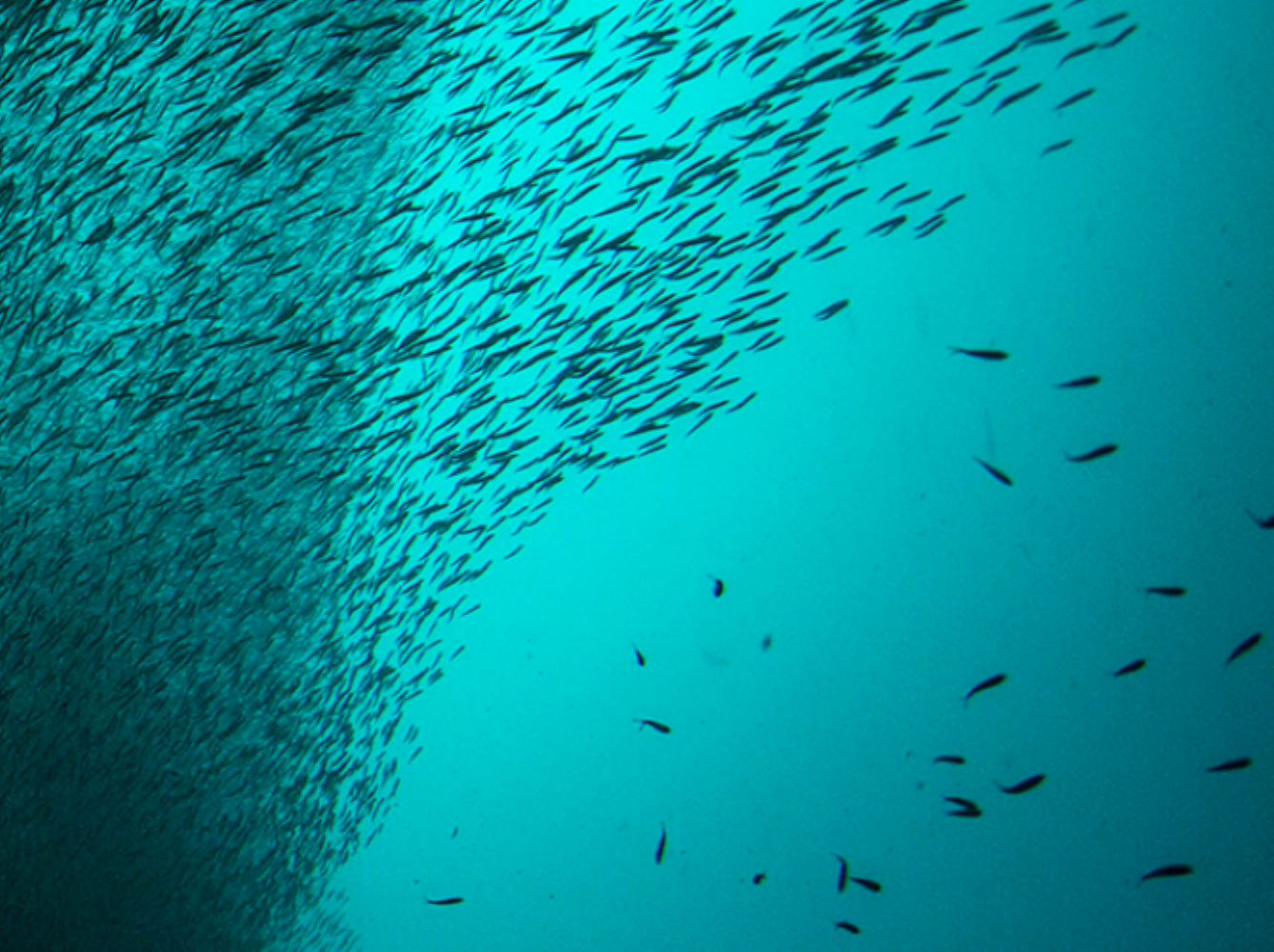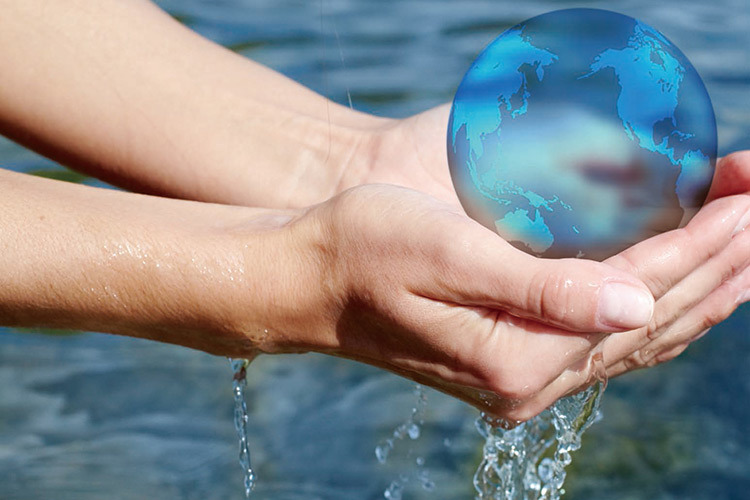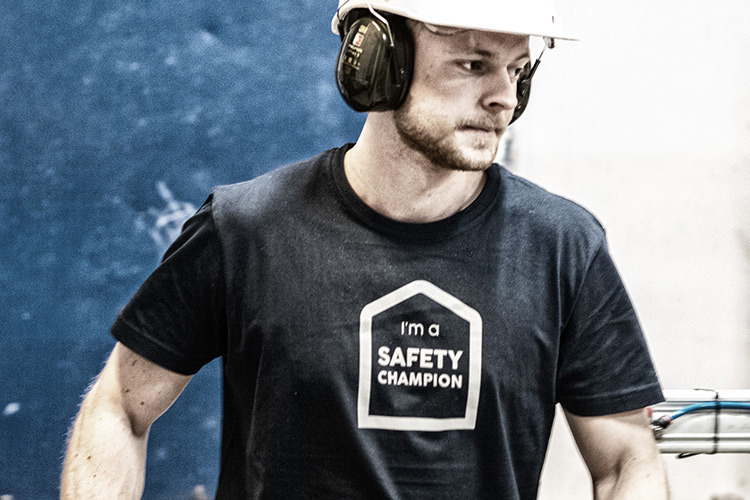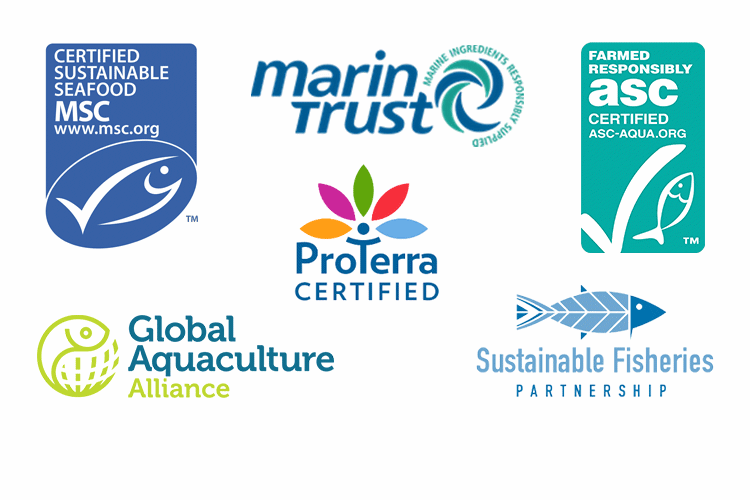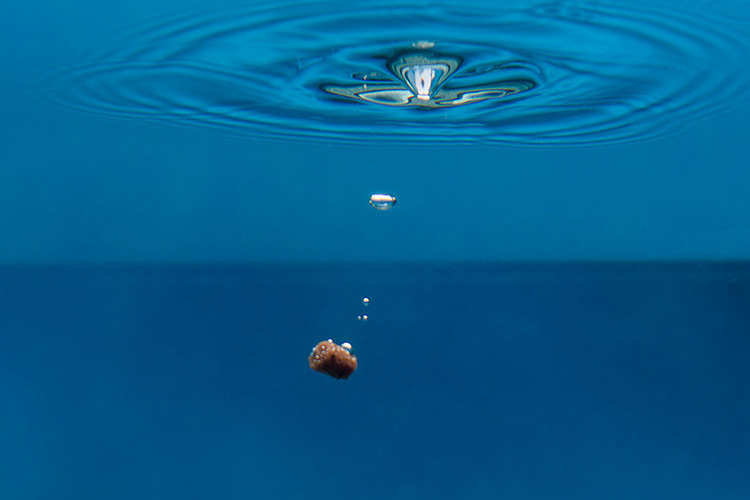
Certificates 2021
Below in this text is the data for the certification status for marine raw material, overview of our certifications plus a list of some of the multi stakeholder initiatives we are engaged in.
Source of marine raw materials
Wild fish harvested from the ocean and processed into fish meal and fish oil are ingredients in fish feeds. Small pelagic fisheries are used in the fish meal and fish oil industry, but in some regions they are also important for direct human consumption. Also known as forage species, these are small, short-lived species that occupy a low trophic level (LTL) in the ecosystem. Due to their specific population biology and dynamics, these species are frequently resilient to fishing pressure if catches are well managed, but overfishing is always a possibility without effective controls. Through our Roadmap 2025, we strive to ensure that marine-based feed ingredients come from sustainable sources in the short- and long-term. The requirements aim to align industry incentives to support processes that will lead to improved fisheries management.
All fish meal and fish oil we use from whole fish must originate from certified (MSC or MarinTrust) fisheries or fisheries subjected to a Fishery Improvement Project (FIP).
More than 98 % of the fish meal and fish oil used in 2021 was certified. The rest is mainly due to trimmings and legal by-catch.
Certification status of marine raw material from fish meal
| Whole fish | Trimmings* | |||
| 2021 | 2020 | 2021 | 2020 | |
| MSC approved | 59,3 % | 85,0 % | 56,0 % | 70,0 % |
| MarinTrust | 35,5 % | 14,0 % | 37,9 % | 23,0 % |
| MarinTrust FIP | 4,2 % | - | - | - |
| None | 0,9 % | 1,0 % | 6,2 % | 7,0 % |
* In 2021 20,54 % of the fish meal came from trimmings. The rest, 79,46 %, came from whole fish. Click here for more information about the origin and use of whole fish and trimmings.
Certification status of marine raw material from fish oil
| Whole fish | Trimmings* | |||
| 2021 | 2020 | 2021 | 2020 | |
| MSC approved | 43,9 % | 41,0 % | 54,6 % | 53,0 % |
| MarinTrust | 54,5 % | 54,0 % | 43,6 % | 36,0 % |
| MarinTrust FIP | 0,8 % | 2,0 % | - | - |
| None | 0,8 % | 3,0 % | 1,8 % | 11,0 % |
* In 2021 31,46 % of the fish oil came from trimmings. The rest, 68,54 %, came from whole fish. Click here for more information about the origin and use of whole fish and trimmings.
Operations
Skretting seeks to minimise the negative impacts of our direct operations and create valuable employment opportunities for the communities in which we operate.
Skretting Norway is certified to a number of recognised standards within the area of food safety and environmental compliance.
Skretting Norway certification overview
|
NS-EN ISO 9001:2015 |
Quality management systems |
|
NS-EN ISO 140001:2015 |
Environmental management systems |
|
ISO 22000:2005 |
Food safety management systems |
|
Global G.A.P. - GGN number: 4050373823641 |
Compound feed manufacturing (Norway) |
|
GLobal g.a.p. non-gm/"Ohne gentechnik" add-on |
Compound feed manufacturing (Norway) |
|
Global G.A.P. - GGN number: 4052852471015 |
Compound feed manufacturing (France) - imported starter feeds |
|
Hazard Analysis and Critical Control Points (HACCP) |
All 3 Skretting Norway factories has implemented HACCP (not certified) |
|
ASC responsible salmon standard |
Deliver ASC compliant feed for part of the production |
|
DEBIO |
Approved for production of organic fish feed (Stavanger plant) |
Operating in compliance with all applicable national laws and local regulations
Skretting operates in accordance with the Norwegian laws governing feed production.
These laws are:
- The food law
- The feed regulation
- Regulations on the use of feed ingredients
- Regulation on feed hygiene
- Regulation on labelling and trade of feed stuffs
- Sector regulation on feed production.
- Factory emission permits
Skretting’s operations are registered with the Norwegian Feed and Food Authorities (Mattilsynet).
Skretting Norway’s feed plants
|
Registration number |
Operation |
|
NO10050187 |
Skretting Stavanger |
|
NO10050270 |
Skretting Averøy |
|
NO10050269 |
Skretting Stokmarknes |
Skretting Norway also operates in accordance with the Pollution Control Act (Act of 13 March 1981 No.6 Concerning Protection Against Pollution and Concerning Waste).
Each operating plant has permits related to emissions to air, effluents to water and ground and handling of waste. Detailed description of permits for each operating plant together with historical records of emissions can be found here http://www.norskeutslipp.no/
Multi stakeholder involvement
Skretting is of the opinion that we can only progress if we communicate to and enter into dialogues with stakeholders, in particular with our own employees, but also with society in general. Together with our parent company Nutreco we are involved in several multi stakeholder initiatives to improve sustainability in aquaculture.
Below are some of the engagements Skretting is involved in:
MarinTrust
MarinTrust, formerly known as the Global Standard for Responsible Supply (IFFO RS ) has become the leading independent business-to-business certification programme for the production of marine ingredients. Skretting is a member of the MarinTrust governance board.
The main purpose of the standard is:
- To ensure that whole fish used come from fisheries managed according to the FAO Code of Conduct for Responsible Fisheries.
- To ensure no Illegal, Unreported and Unregulated (IUU) fishery raw materials are used.
- To ensure pure and safe products are produced under a recognised Quality Management System, thereby demonstrating freedom from potentially unsafe and illegal materials.
- To ensure full traceability throughout production and the supply chain.
Aquaculture Stewardship Council (ASC)
Established in 2010, the Aquaculture Stewardship Council (ASC) is a robust and credible environmental/social standard in the farmed seafood sector. It currently has over 1.6 million tonnes of farmed seafood independently certified and compliant to the standard. Nutreco’s Sustainability Director sits on the Supervisory Board of the ASC. Currently Skretting is a member of the steering committee overseeing the work related to develop an ASC Feed Standard.
Sustainable Fisheries Partnership (SFP)
Skretting is a sponsor of the Sustainable Fisheries Partnership (SFP). SFP fills a specific gap between industry and the marine conservation community, utilising the power of the private sector to help less well-managed fisheries meet the environmental requirements of major markets. Their work is organised around two main principles: making available up-to-date information on fisheries for the benefit of major buyers and other fisheries stakeholders and using that information to engage all stakeholders along the supply chain in fisheries improvements and moving toward sustainability.
SFP operates through two main principles: information and improvement.
The North Atlantic Pelagic Advocacy Group (NAPA)
The North Atlantic Pelagic Advocacy Group (NAPA) was created as a sector wide, multi-stakeholder initiative of partners to build a shared, global and non-competitive solution to complex sustainability issues in the Northeast Atlantic Pelagic fisheries.
NAPA represents retailers, foodservice companies and suppliers from EU and non-EU countries with the shared aim of sourcing sustainable and certified seafood in order to supply a growing demand for eco-labelled fish products. To achieve this, NAPA is seeking an agreement on total allowable catches for Northeast Atlantic Pelagic fisheries in line with scientific advice, and for a long-term science-based management agreement.
Global Salmon Initiative (GSI)
An important way in which Skretting is helping advance the salmon sector is through its membership of the Global Salmon Initiative (GSI). In partnership, GSI salmon farmers and feed companies have committed to work precompetitively together to accelerate progress towards ever increasing standards of sustainability for the farmed salmon industry, and to driving progressive innovation in the feed sector.
Skretting is an Associate Member of GSI. These are organisations that have a shared interest in the continued growth and prosperity of the farmed salmon industry as well as a shared commitment to improving the sustainability of the sector.
Associate Members work closely with the GSI members on specific projects where shared knowledge and collaborative working will support accelerated progress.
SeaBOS
In 2020, Skretting continued to be a key contributor to the Seafood Business for Ocean Stewardship (SeaBOS) initiative. CEOs from the 10 largest global seafood companies have joined forces through SeaBOS to create transformative change.
The work is divided into five task forces: (1) Illegal, Unreported and Unregulated (IUU) Fishing & Modern Slavery, (2) Transparency and Traceability, (3) Improving Regulations, (4) Internal Governance and (5) Innovation.
Global Aquaculture Alliance (GAA)
Skretting is a member of the Global Aquaculture Alliance (GAA), an international non-profit organisation that promotes responsible aquaculture practices through education, advocacy and demonstration.
For over 20 years GAA has demonstrated our commitment to feeding the world through responsible and sustainable aquaculture. GAA does this by providing resources to individuals and businesses worldwide who are associated with aquaculture and seafood. They improve production practices through partnerships with countries, communities and companies, as well as online learning and journalism that boasts active readership in every country of the world.
GLOBALG.A.P.
Skretting is member of GLOBALG.A.P. which is an organisation that has developed criteria for food safety, sustainable production methods, worker and animal welfare, and responsible use of water, compound feed and plant propagation materials. Skretting is also a member of the technical committee that oversees the GLOBALG.A.P. aquaculture standard.
European Feed Manufacturers’ Federation (FEFAC)
Nutreco is a member of the European Feed Manufacturers’ Federation (FEFAC) Sustainability Committee, which meets two or three times each year in Brussels, Belgium, to address sustainability initiatives associated with the European feed industry.
A positive outcome of this committee was the roll-out of the FEFAC Soy Sourcing Guidelines, which lay out the minimum criteria that purchasing feed mills could incorporate when making their soybean, soybean meal and soy concentrate purchases.
The ProTerra Foundation
Skretting is member of the ProTerra Foundation which is a not-for-profit organisation that advances and promotes sustainability at all levels of the feed and food production chain. A commitment to full transparency and traceability throughout the supply chain and concern for corporate social responsibility and the potential detrimental impact of herbicide-resistant, genetically modified crops on ecosystems and biodiversity is integral for ProTerra.
Independent third party certification is central to the Proterra Foundation. ProTerra certification ensures that high quality supplies of crops, food, and feed are independently certified and produced with improved sustainability.
ProTerra certification ensures that high quality supplies of crops, food, and feed are independently certified and produced with improved sustainability
The Round Table on Responsible Soy (RTRS)
Nutreco is member of the Round Table on Responsible Soy (RTRS) which is a civil organisation that promotes responsible production, processing and trading of soy on a global level.
RTRS encourages current and future soybean to be produced in a responsible manner to reduce social and environmental impacts while maintaining or improving the economic status for the producer through the development, implementation and verification of a global standard.
New York Declaration on Forests
Skretting is a signatory of The New York Declaration on Forests (NYDF) which is a voluntary and non-binding international declaration to take action to halt global deforestation. It was first endorsed at the United Nations Climate Summit in
September 2014, and by October 2017 the NYDF supporters grew to include over 191 endorsers: 40 governments, 20 sub-national governments, 57 multi-national companies, 16 groups representing indigenous communities, and 58 non-government organisations.
These endorsers have committed to doing their part to achieve the NYDF’s ten goals and follow its accompanying action agenda.
Cerrado Manifesto Statement of Support Group
Established in 2017, Nutreco was one of 23 founding member signatories to the Cerrado Manifesto Statement of Support Group (SoS). The SoS has become the world’s largest business-driven group calling for immediate action in defense of the Cerrado by supporting local and international stakeholders.
Today, there are 132 company signatories to the SoS across agro-industrial, farming and food processing, finance, packaged consumer goods, retail and foodservice and other supporter groups. Its key focus in 2019-2020 is to support the activity of the Brazilian Grupo de Trabalho do Cerrado (GTC) by accelerating the transition to deforestation and conversion-free soy production and to share knowledge and action plans with key Chinese companies and stakeholders.
UN Global Compact
Our mother company Nutreco is a member of The United Nations Global Compact programme. This is a non-binding United Nations pact to encourage businesses worldwide to adopt sustainable and socially responsible policies, and to report on their implementation.
The UN Global Compact is a principle-based framework for businesses, stating ten principles in the areas of human rights, labor, the environment and anti-corruption. Under the Global Compact, companies are brought together with UN agencies, labor groups and civil society. Nutreco has been a member since 2015.
